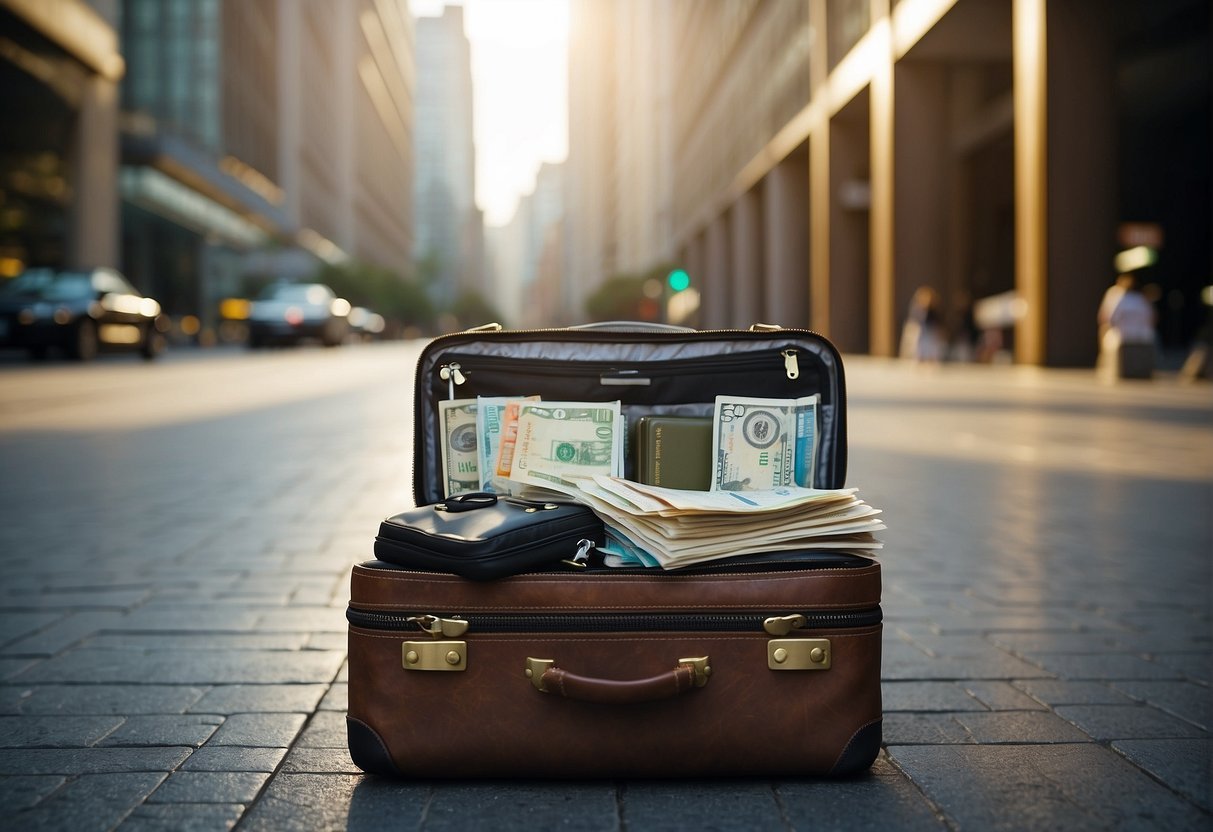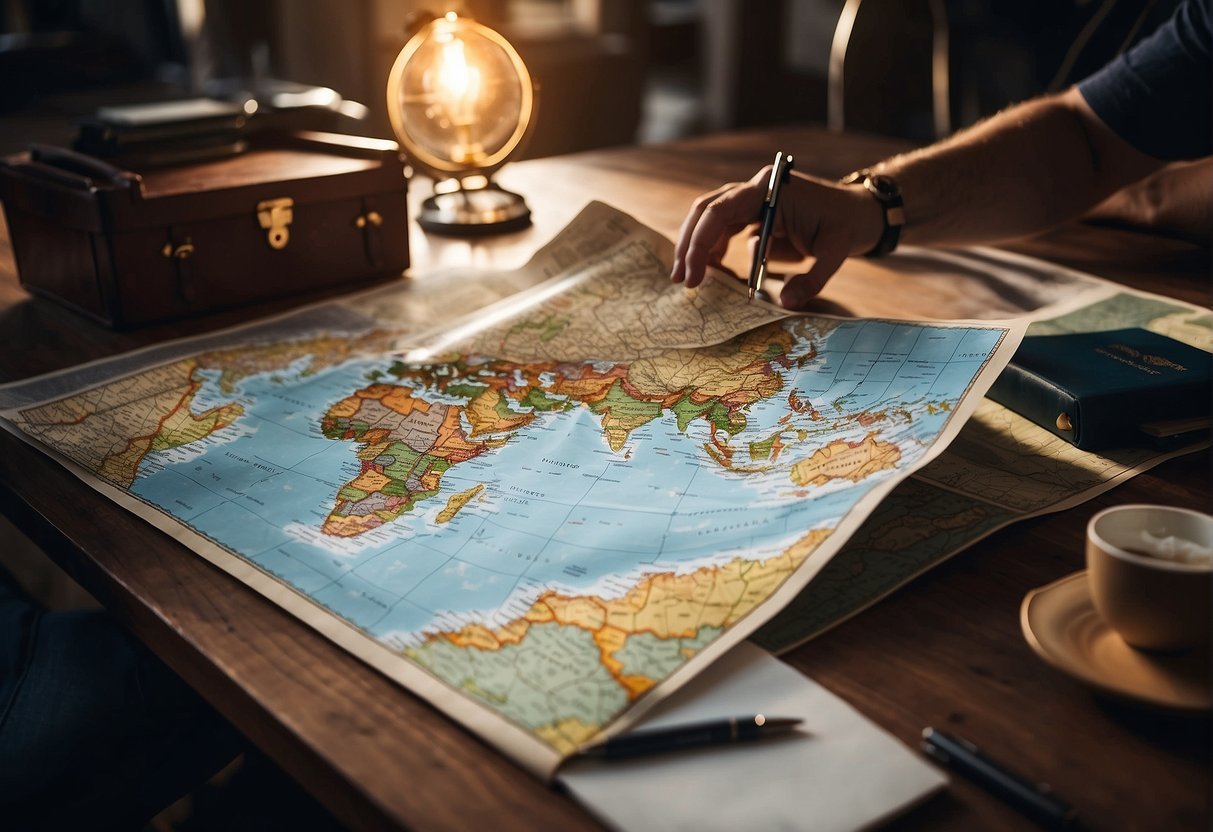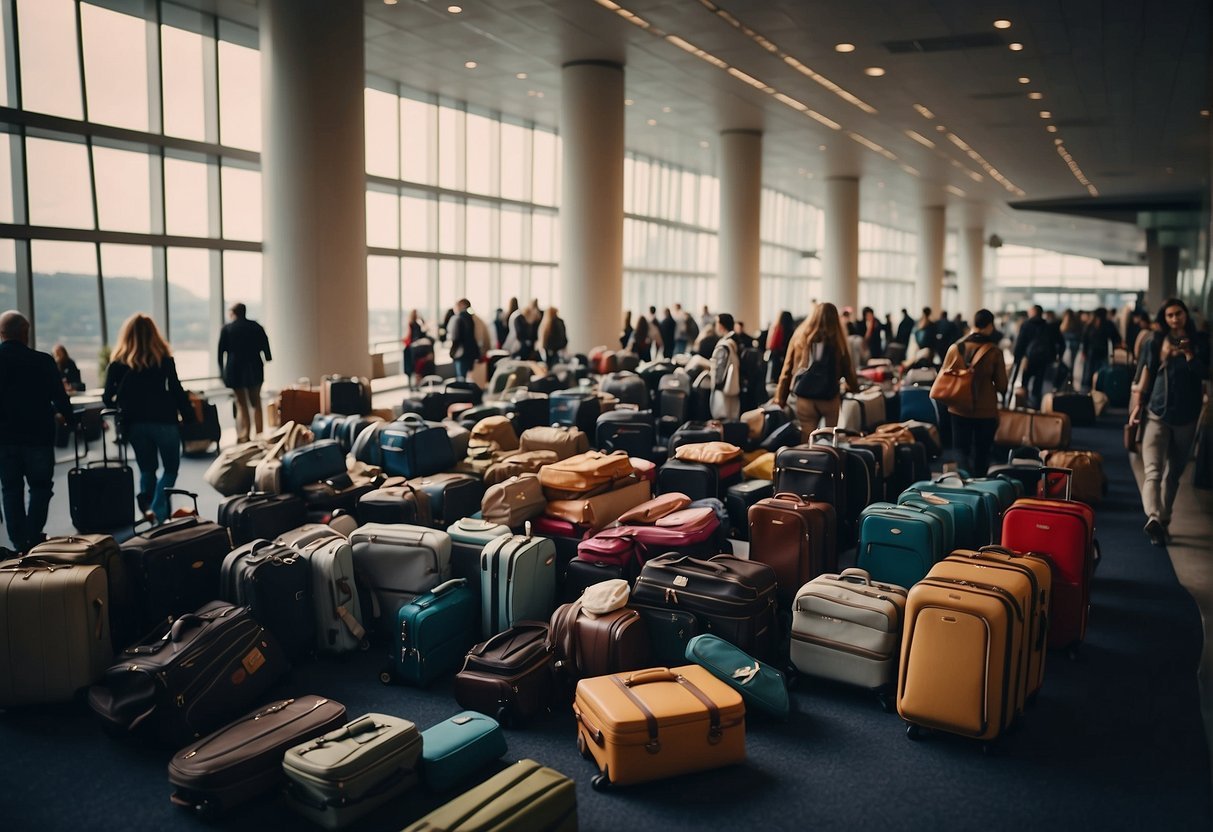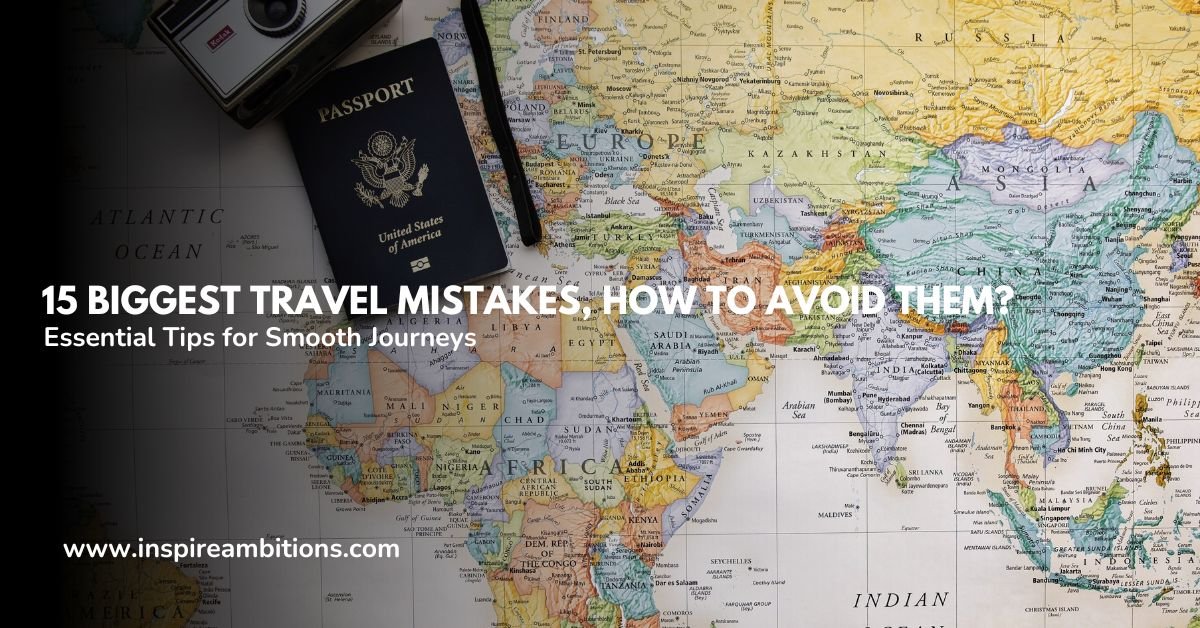15 Biggest Travel Mistakes and How to Avoid Them – Essential Tips for Smooth Journeys
Travelling can be a transformational experience, offering new perspectives, cherished memories, and the thrill of exploring the unknown.
However, amidst the excitement, it’s easy for travellers to fall prey to common pitfalls that can turn an adventure into a series of headaches. By recognizing these potential missteps, adventurers can sidestep the common woes that beset the unprepared.

A successful journey hinges on the delicate balance between meticulous planning and the flexibility to embrace the unexpected. Savvy travellers understand that some mistakes are inevitable, but most are avoidable with the right mix of preparation and presence of mind.
Whether dealing with overpacking, navigating passport issues, or understanding the importance of backing up precious travel photos, addressing these challenges head-on will ensure a more enjoyable and stress-free trip.
Biggest Travel Mistakes and How to Avoid Them – Key Takeaways
- Effective trip planning minimizes common travel mistakes.
- Awareness during travel helps avoid issues with logistics and safety.
- Adapting to unforeseen circumstances can enhance the travel experience.
Preparation and Planning

The saying “fail to prepare, prepare to fail” holds particularly true regarding travel. A well-laid plan can save time, reduce stress, and help you manage your budget effectively.
Booking and Reservations
Time and Research: Before booking flights or accommodations, it’s essential to research to find the best deals. Utilize guidebooks and online resources to determine each option’s cost, quality, and convenience.
- Flights: Aim to book flights at least several weeks in advance and consider the time and cost implications of layovers.
- Accommodations: Early reservations usually secure lower rates and assure availability, especially in peak seasons.
Essential Documents and Finances
Documentation: Ensure all travellers’ passports are valid for at least 6 months beyond the travel dates. Keep a digital copy of essential documents on a USB drive or cloud storage as a backup.
- Travel Insurance: It is essential to have insurance and understand what is covered. Review the policy for foreign medical care and trip cancellations.
- Banking: Notify your bank of travel plans to prevent any blocked transactions. Research if your credit card incurs foreign transaction fees and consider using currency exchange or ATMs to save money.
Packing and Luggage
Efficiency and Necessities: Overpacking leads to cumbersome luggage and potentially expensive overweight fees. Pack versatile clothing and purchase bulky items at the destination if necessary.
- List of Essentials: Create a list of must-have items, emphasizing the versatility of each piece.
- Valuables: Keep valuable items in your carry-on luggage. Use TSA-approved locks and consider travel insurance that covers loss or theft.
During the Trip

Embarking on a vacation is just the beginning; the real adventure unfolds during the journey. This section helps travellers navigate interactions and manage their time effectively, ensuring a travel experience rich in local culture and free from common hiccups.
Local Interactions and Experiences
When immersing yourself in local life, currency exchange and communication are vital. Always exchange money at reputable venues and carry sufficient local currency for small expenses.
Beware of scammers, especially in crowded tourist spots, as pickpockets can target unwary travellers. If you’re enjoying a local pub or bar in Germany, Vietnam, or Portugal, getting to know locals can enrich your experience, but maintain an open mind and remain cautious.
Navigating unfamiliar quarters might require a cell phone with a local SIM card to avoid unexpected charges. A guidebook might also help, but asking for directions lets you interact with the locals. Double-check all documents, particularly your passport, to avoid any issues during your travel. Regarding bargaining at markets, do so with respect, as it’s part of the culture in many places.
- Verify exchange rates regularly.
- Use a safe and reliable cell phone plan.
- Secure your passport and other essential documents.
- Keep a guidebook or translation app handy.
- Embrace local experiences while being aware of scammers.
Managing Your Time and Health
Effective time management can prevent the common mistake of an over-ambitious itinerary. Always factor in time zones and potential jet lag. It’s tempting to cram many daily activities, but overextending can lead to exhaustion. Instead, schedule downtime and choose a few meaningful activities.
For your health, staying hydrated and eating well are critical. Carrying a reusable water bottle is both environmentally friendly and practical. Be cautious of where you eat to avoid any health issues. Regarding transportation, choose a legitimate taxi service or familiarize yourself with the local train schedules to avoid being overcharged.
- Plan activities with rest periods in between to avoid burnout.
- Stay hydrated and choose safe eating options.
- Use reputable transportation services for intra-city travel.
- Prepare for time zone changes and jet lag, especially when travelling great distances.







